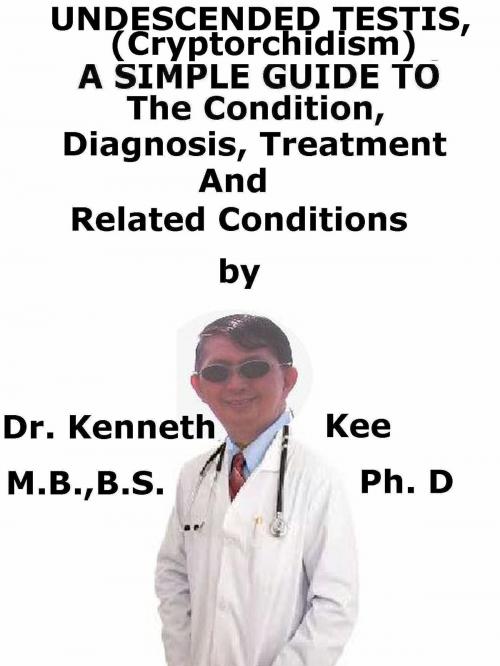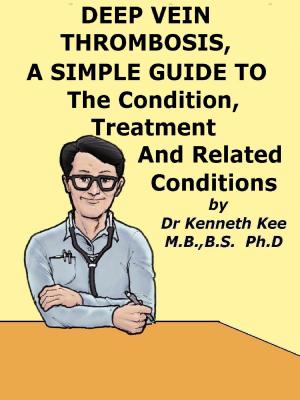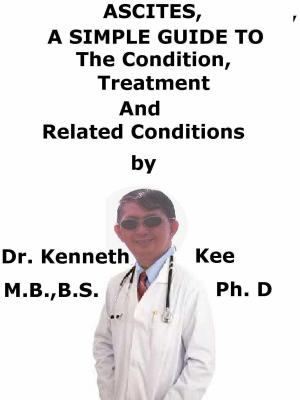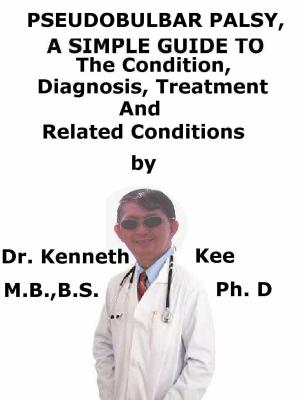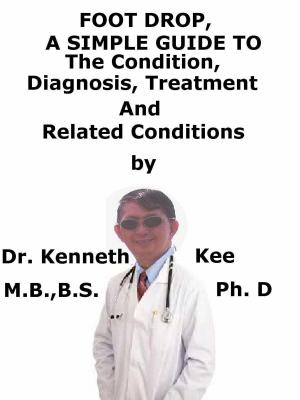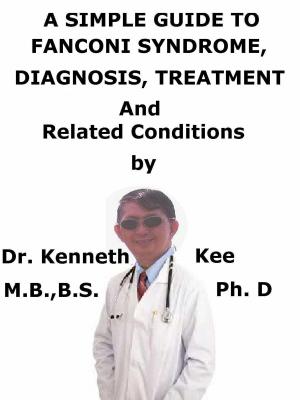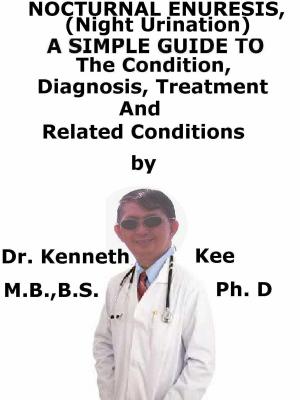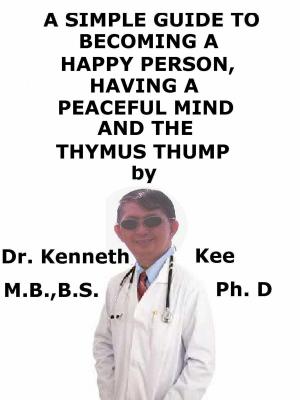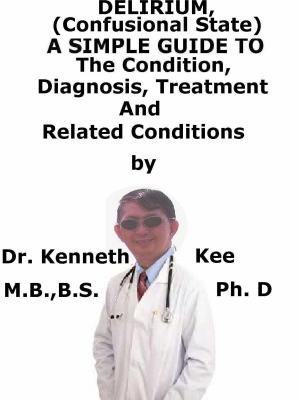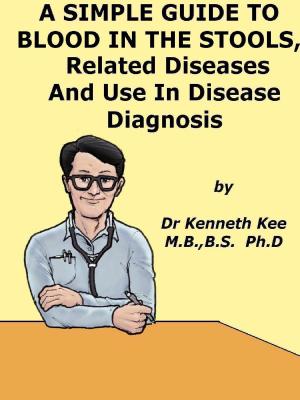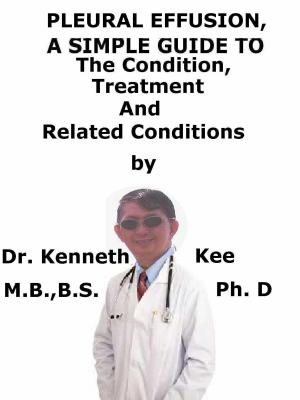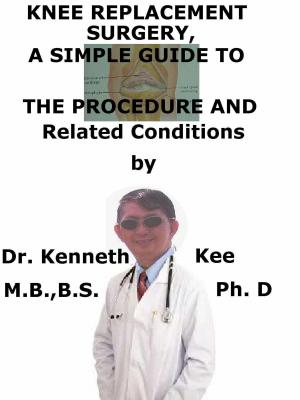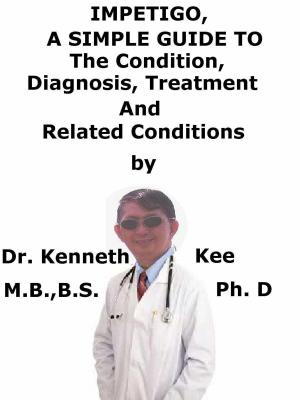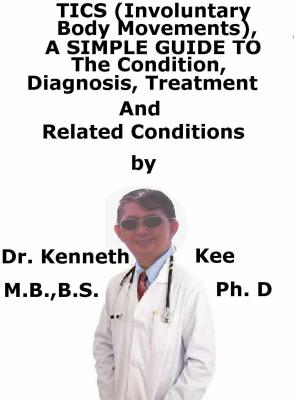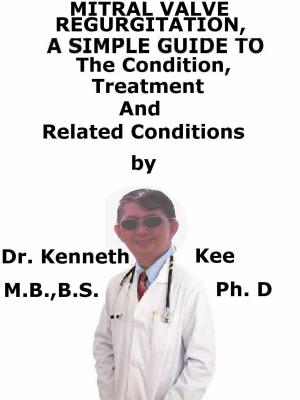Undescended Testis, (Cryptorchidism) A Simple Guide To The Condition, Treatment And Related Conditions
Nonfiction, Health & Well Being, Medical, Specialties, Urology, Reproductive Medicine| Author: | Kenneth Kee | ISBN: | 9781370332335 |
| Publisher: | Kenneth Kee | Publication: | August 8, 2017 |
| Imprint: | Smashwords Edition | Language: | English |
| Author: | Kenneth Kee |
| ISBN: | 9781370332335 |
| Publisher: | Kenneth Kee |
| Publication: | August 8, 2017 |
| Imprint: | Smashwords Edition |
| Language: | English |
Undescended Testis or Cryptorchidism is the medical disorder where there is incomplete or improper descent of one or both testes through the tunnel which leads the spermatic duct from the abdomen to the testis.
Undescended testis happens when one or both testes did not enter the scrotum before birth
Causes of Undescended Testis
1. Normally the testes in the fetus are in the abdomen and make their way to the inguinal canal by the 23rd week of pregnancy and enter the scrotum by the 39th week of pregnancy.
Most of the time, a boy’s testicles descend by the time he is 9 months old.
Undescended testicles or Cryptorchidism are fairly common in infants who are born early.
The problem happens less frequently in full-term babies.
Some infants have retractile testes and the doctor may not be able find the testes.
In this case, the testis is normal but has been pulled back out of the scrotum by a muscle reflex.
This is able to happen because the testes are still of small size prior to puberty.
The testicles will descend normally at puberty and surgery is not required.
Testes that do not normally go down into the scrotum are considered abnormal.
An undescended testis tends to form cancer, even if it enters into the scrotum with surgery.
Cancer is also more likely in the other testis.
Operation to bring the testis inside the scrotum can improve sperm production and increase the chances of good fertility.
It also allows the doctor to do an exam for the early detection of cancer.
In other cases, no testis may be found, even with the surgery.
This may be because of a problem that occurred while the baby was still developing before birth.
This is able to occur because the testicles are still small before puberty.
The testicles will descend normally at puberty and surgical intervention is not required.
Testes that do not normally enter the scrotum are regarded as not normal.
Getting the testis into the scrotum can improve sperm production and raise the possibilities of higher fertilization.
It also permits the doctor to do an exam for the early detection of cancer.
In other patients, no testis may be detected even with surgical intervention.
This may be due to a problem that occurred while the baby was still developing before birth.
2. Sometimes one or rarely both testes fail to enter the scrotum before birth.
They may remain in the abdomen or may be not fully descended to the scrotum at birth.
3. The undescended testes can either be normal or dysplastic (cells may turn abnormal)
4. Intra-abdominal testes may be unable to produce sperm and also susceptible to malignant change.
5. Testis situated outside the usual course of descent is termed ectopic.
Diagnosis of Undescended Testis
All male babies at birth are examined at birth to determine whether their testes have descended into the scrotum normally.
Most of the time there are no symptoms other than the absence of the testicle in the scrotum.
This is called an empty scrotum.
The doctor may or may not be able to feel the undescended testicle in the abdominal lining above the scrotum.
Imaging studies including an ultrasound or CT scan may be done.
Treatment of Undescended Testis
In most cases, the testicle will descend without treatment during the child’s first year.
If this does not occur, treatment may include:
1. Hormone injections (B-HCG or testosterone) to try to bring the testicle into the scrotum
2. Surgery (orchiopexy) to bring the testicle into the scrotum
This is the main treatment.
Having surgery early may prevent injury to the testes that can produce infertility.
An undescended testicle that is found later in life may need to be removed because the testis tends to function poorly and could pose a risk for cancer.
TABLE OF CONTENT
Introduction
Chapter 1 Undescended Testis
Chapter 2 Cause
Chapter 3 Symptoms
Chapter 4 Diagnosis
Chapter 5 Treatment
Chapter 6 Prognosis
Chapter 7 Varicocele
Chapter 8 Buried Penis
Epilogue
Undescended Testis or Cryptorchidism is the medical disorder where there is incomplete or improper descent of one or both testes through the tunnel which leads the spermatic duct from the abdomen to the testis.
Undescended testis happens when one or both testes did not enter the scrotum before birth
Causes of Undescended Testis
1. Normally the testes in the fetus are in the abdomen and make their way to the inguinal canal by the 23rd week of pregnancy and enter the scrotum by the 39th week of pregnancy.
Most of the time, a boy’s testicles descend by the time he is 9 months old.
Undescended testicles or Cryptorchidism are fairly common in infants who are born early.
The problem happens less frequently in full-term babies.
Some infants have retractile testes and the doctor may not be able find the testes.
In this case, the testis is normal but has been pulled back out of the scrotum by a muscle reflex.
This is able to happen because the testes are still of small size prior to puberty.
The testicles will descend normally at puberty and surgery is not required.
Testes that do not normally go down into the scrotum are considered abnormal.
An undescended testis tends to form cancer, even if it enters into the scrotum with surgery.
Cancer is also more likely in the other testis.
Operation to bring the testis inside the scrotum can improve sperm production and increase the chances of good fertility.
It also allows the doctor to do an exam for the early detection of cancer.
In other cases, no testis may be found, even with the surgery.
This may be because of a problem that occurred while the baby was still developing before birth.
This is able to occur because the testicles are still small before puberty.
The testicles will descend normally at puberty and surgical intervention is not required.
Testes that do not normally enter the scrotum are regarded as not normal.
Getting the testis into the scrotum can improve sperm production and raise the possibilities of higher fertilization.
It also permits the doctor to do an exam for the early detection of cancer.
In other patients, no testis may be detected even with surgical intervention.
This may be due to a problem that occurred while the baby was still developing before birth.
2. Sometimes one or rarely both testes fail to enter the scrotum before birth.
They may remain in the abdomen or may be not fully descended to the scrotum at birth.
3. The undescended testes can either be normal or dysplastic (cells may turn abnormal)
4. Intra-abdominal testes may be unable to produce sperm and also susceptible to malignant change.
5. Testis situated outside the usual course of descent is termed ectopic.
Diagnosis of Undescended Testis
All male babies at birth are examined at birth to determine whether their testes have descended into the scrotum normally.
Most of the time there are no symptoms other than the absence of the testicle in the scrotum.
This is called an empty scrotum.
The doctor may or may not be able to feel the undescended testicle in the abdominal lining above the scrotum.
Imaging studies including an ultrasound or CT scan may be done.
Treatment of Undescended Testis
In most cases, the testicle will descend without treatment during the child’s first year.
If this does not occur, treatment may include:
1. Hormone injections (B-HCG or testosterone) to try to bring the testicle into the scrotum
2. Surgery (orchiopexy) to bring the testicle into the scrotum
This is the main treatment.
Having surgery early may prevent injury to the testes that can produce infertility.
An undescended testicle that is found later in life may need to be removed because the testis tends to function poorly and could pose a risk for cancer.
TABLE OF CONTENT
Introduction
Chapter 1 Undescended Testis
Chapter 2 Cause
Chapter 3 Symptoms
Chapter 4 Diagnosis
Chapter 5 Treatment
Chapter 6 Prognosis
Chapter 7 Varicocele
Chapter 8 Buried Penis
Epilogue
